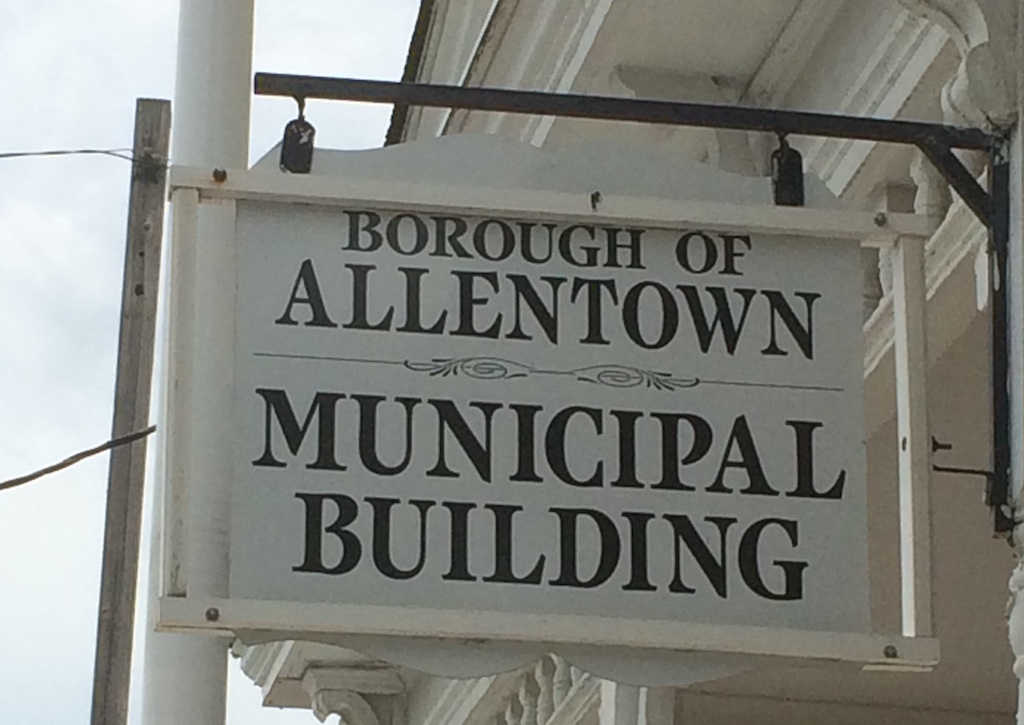ALLENTOWN – Following an hour of discussion among residents and municipal officials, the members of the Allentown Borough Council voted to table an ordinance that sought to create a permanent Senior Citizen Advisory Committee in the borough.
During their meeting on Jan. 22, council members considered the adoption of an ordinance that would eliminate an ad hoc senior citizen committee and establish a permanent Senior Citizen Advisory Committee.
The ordinance was tabled in a 6-0 vote as officials said certain changes in the proposed ordinance would be made. The ordinance could return before the council in a revised form at a later date.
Council President Thomas Fritts and council members Angela Anthony, Rob Schmitt, Robert Strovinsky, John A. Elder III and Michael Drennan voted to table the ordinance during the meeting at Borough Hall.
During a public hearing on the proposed ordinance, members of the ad hoc senior citizen committee, which plans and hosts programs for Allentown’s seniors, addressed the council.
Members of the ad hoc committee objected to having their committee eliminated; to having additional members added to the new permanent committee; to having individuals who are not senior citizens serving on the new committee; to having representatives of businesses serving on the new committee; and to what they asserted was the council’s intent to eliminate the ad hoc committee without their knowledge.
Frank Lumia, who has been a member of the ad hoc committee for two years, said, “We have never had any feedback from the Borough Council, good or bad. This ordinance came out of nowhere. We heard about it through the grapevine. We are taking it as a slap in the face. … That is something I feel you need to explain to us.”
Harry Barber, another member of the ad hoc committee, said, “In all my years as an administrator, never would I have had the temerity to make changes to a group without first obtaining all the knowledge necessary to make such decisions. … This is very, very sad, even pathetic …”
Joe Monticello, another member of the ad hoc committee, said, “I find it unconscionable that council would dismiss the committee members and their three-year long work product in such a cavalier, yet calculating manner.
“To suggest that the committee, as currently constituted, is lacking in the expertise, connections, numbers or wherewithal necessary to effectively serve and meet the needs of the borough’s seniors is both absurd and foolish,” he said. “You have no idea how hard we have worked on behalf of seniors.”
Jane Westfall, the wife of Mayor Greg Westfall, said that with the planned action to eliminate the ad hoc committee and create an expanded permanent senior committee, “the council is becoming Hitler. The council wants to dictate to the senior committee. The council wants to dictate what their needs are.”
Linda Cotte, who is a member of the Allentown Economic Development Commission (EDC), noted that the commission’s membership was expanded in 2018. She said, “I hope that adding membership to the senior committee works as well as expanding the EDC has worked.”
After listening to members of the public, council members responded.
“This (proposed) ordinance has nothing to do with the great efforts of the ad hoc committee,” Fritts said. “We see the proposed committee as a way to address issues relating to our senior citizens. Our intention is to bring the community together by encouraging intergenerational membership on the committee, to bring balance.”
Fritts said there are examples across New Jersey where individuals who are not senior citizens (defined in Allentown as 60 and over) have joined committees that plan programs for seniors.
Creating a permanent senior committee “wasn’t some nonchalant thing we decided to do,” he said. “The residents we add (to the senior committee) will be a plus.”
Fritts said the plan is to add more volunteers to the senior committee, including three additional voting members, and several alternates to ensure there would always be a voting quorum at a meeting of the senior committee.
“The ad hoc committee cannot continue forever,” Schmitt said. “If it’s doing a good job it’s time to codify it and make it a formal committee.”
Strovinsky commended the members of the ad hoc committee, saying, “You guys have done a good job.” He said he could not see a problem with adding volunteers who would help plan programs and offer services to seniors.
“We are trying to bring the community together. I wish we would all stop this bickering. Give this ordinance a try for one year,” Strovinsky said.
Elder said there are advantages to making the ad hoc committee a permanent body, saying, “I fully support an ordinance that codifies a senior committee. The committee should be mostly seniors … maintaining that majority composition is very important to the committee.”
One suggestion offered by the members of the ad hoc committee as a compromise was to allow the ad hoc group to continue to exist and for the council to establish a permanent senior committee.
Drennan said, “Having one committee makes sense. As a volunteer (councilman), why would I want to hurt volunteers?” He suggested giving the proposed ordinance a one-year time frame and then reassessing the status of the permanent committee.
Fritts said the proposed ordinance needs some “tweaks.”
Drennan made a motion to table the ordinance and council members voted unanimously to table the ordinance and to wait for revisions that will be prepared by the borough attorney.

